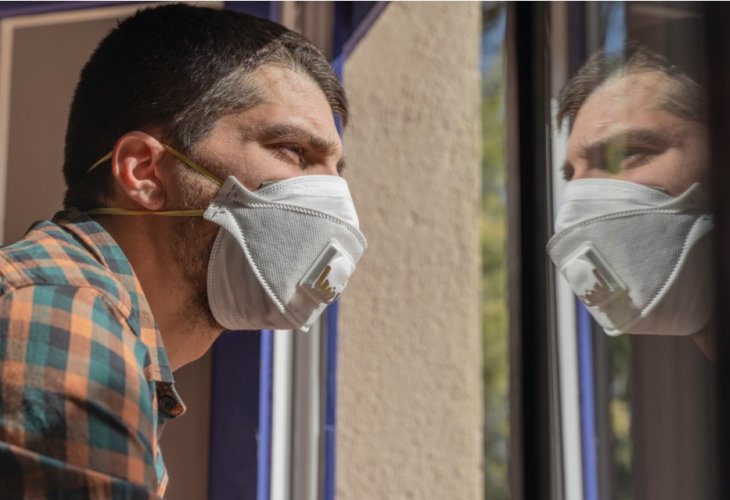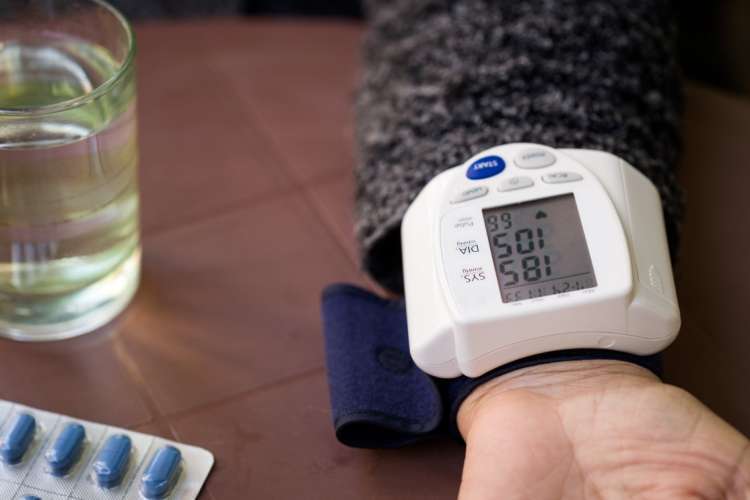Recovered from COVID-19? The Story Might Not Be Over
Evidence is growing of COVID-19 survivors experiencing lingering symptoms, sometimes severely.
 (Photo illustration: shutterstock)
(Photo illustration: shutterstock)"Something changed in me since COVID-19," H. shared with me a few weeks ago. "I get tired more quickly, need to nap in the afternoon, and suddenly I'm out of breath with any exertion."
H., a man in his 70s, contracted COVID-19 in April, just before Passover. His family, worried as he was in a risk group due to his age and mild lung disease, celebrated the holiday with gratitude to Hashem for his mild illness. Some fever, fatigue, slight muscle aches, and a temporary loss of taste, but no major breathing issues or hospitalization required.
Yet now, about two months after his second negative COVID-19 test, H. still feels the effects of the virus. He's still youthful in spirit, lively and active, but not like before. The fatigue remains, and breathing difficulties—albeit mild—have unexpectedly emerged in recent weeks. The basic tests show everything is fine, leaving only one cause: COVID-19.
More and more people who recovered from COVID-19 report persistent symptoms weeks or even months after, and many others report symptoms resembling COVID-19 appearing post-recovery. The individuals interviewed for this article preferred to remain anonymous but wish to share their experiences.
"I got infected in late April," says T., in her 30s. "I had no major symptoms except loss of smell and mild fatigue. Weeks later, I tested negative for COVID-19, but my sense of smell hasn't returned. Even now, I can't smell anything."
Similarly, M. contracted the virus around Passover, experiencing fever, weakness, and taste changes. The fever and weakness passed, but taste alterations persist. "Not as strong as during the illness, my taste has improved overall, but there's still a change, and foods I once enjoyed are much less appealing now."
 (Photo: shutterstock)
(Photo: shutterstock)The Virus is Gone – The Illness Remains
Doctors nationwide report a wide range of symptoms, both physical and mental, appearing in those infected with COVID-19, even after recovery. The virus may be gone from the body, but its damage continues to plague "recovered" patients.
Recently established recovery clinics are monitoring these symptoms, collecting data, and offering support to those still unwell. Doctors in these and other clinics report COVID-19 survivors experiencing extreme fatigue, weakness, muscle pain, persistent loss of smell and taste, even beyond apparent recovery from the virus. Cognitive symptoms are also prevalent—difficulty concentrating, impaired attention, significant memory loss, and impatience. Many also suffer from mental health issues—mainly depression, including suicidal thoughts, disassociation, and related conditions. Some can be attributed to stress from the pandemic and hospitalization, yet these symptoms occur in mild cases without hospitalization or special treatment.
D., 33, thought she was done with COVID-19, despite the tough experiences during her illness. "I'm diabetic and insulin-dependent," she explains. "Doctors were divided on whether type 1 diabetes like mine puts me in a 'high-risk' category for COVID-19. I was cautious, stayed home as much as possible, yet I still caught the virus." She describes a frightening incident linked to COVID-19 before knowing she was infected. "We were in quarantine during Passover after exposure to a confirmed case. We had a delightful Seder, but the next morning, medics were over me, treating a sugar crash I had," she recounts. Diabetics on insulin often experience hypoglycemia, but D. had never faced a sugar drop leading to severe unconsciousness like during that holiday. "My son tried to wake me, failed, and called the ambulance in the middle of the holiday, saving my life," she says. Only after recovering from the sugar crash did she feel unwell and realized she had a fever. "The next day, I was diagnosed with COVID-19. A week later, after the holiday, it happened again—another sugar crash led to unconsciousness. COVID-19 seemed to make my body react differently to sugar crashes. Before, I'd wake at early signs and eat; now, I didn't wake up."
In the days following, D. recovered. "I felt great: no more fever or fatigue, my sugar levels were balanced again. It took about a month before I tested negative, but I felt wonderful even before that—until two weeks ago. Suddenly, I was irrationally exhausted from minimal activity, couldn't concentrate at work, and needed sleep constantly. Then, after nearly two healthy months, another unconscious episode from a sugar crash occurred. I’ve been diabetic for 10 years, never needed medical attention for a sugar crash—until COVID-19, and now even after recovery."
 (Photo: shutterstock)
(Photo: shutterstock)What Do The Studies Say?
COVID-19 presents as a disease unlike any known before. The medical community knows little about the long-term damage left by the virus, and studies worldwide aim to track and understand these lasting effects. At the IRCCS research center in the University of Milan, Italy, an MRI on a COVID-19 patient revealed brain structure changes in two areas that affect smell and taste. A follow-up scan showed some recovery and improvements, with the patient later reporting a return of her sense of smell.
Initial results from a study at the Shaare Zedek Medical Center's Pulmonology Department indicate about 50% of COVID-19 survivors continue experiencing fatigue and breathing difficulties months after recovery. The study also shows no correlation between initial severity and post-recovery symptoms; severe cases might recover wholly, while some mild cases report long-term lung damage despite minimal symptoms. Some recovered individuals show heart damage, stroke-like symptoms, and other issues visible on medical exams, with causes not entirely understood.
As of now, it's unclear if these COVID-19-related symptoms are temporary and will fade with time, like the virus itself, or if they're here to stay.
Research continues to understand these symptoms, their relation to COVID-19, the causes, and appropriate treatments. Meanwhile, it's critical to remember: COVID-19 is not the flu. It's a complex disease, even in mild cases, and preventing infection remains vital: practicing social distancing, mask-wearing, and personal hygiene isn’t just a recommendation—it's about our health.

